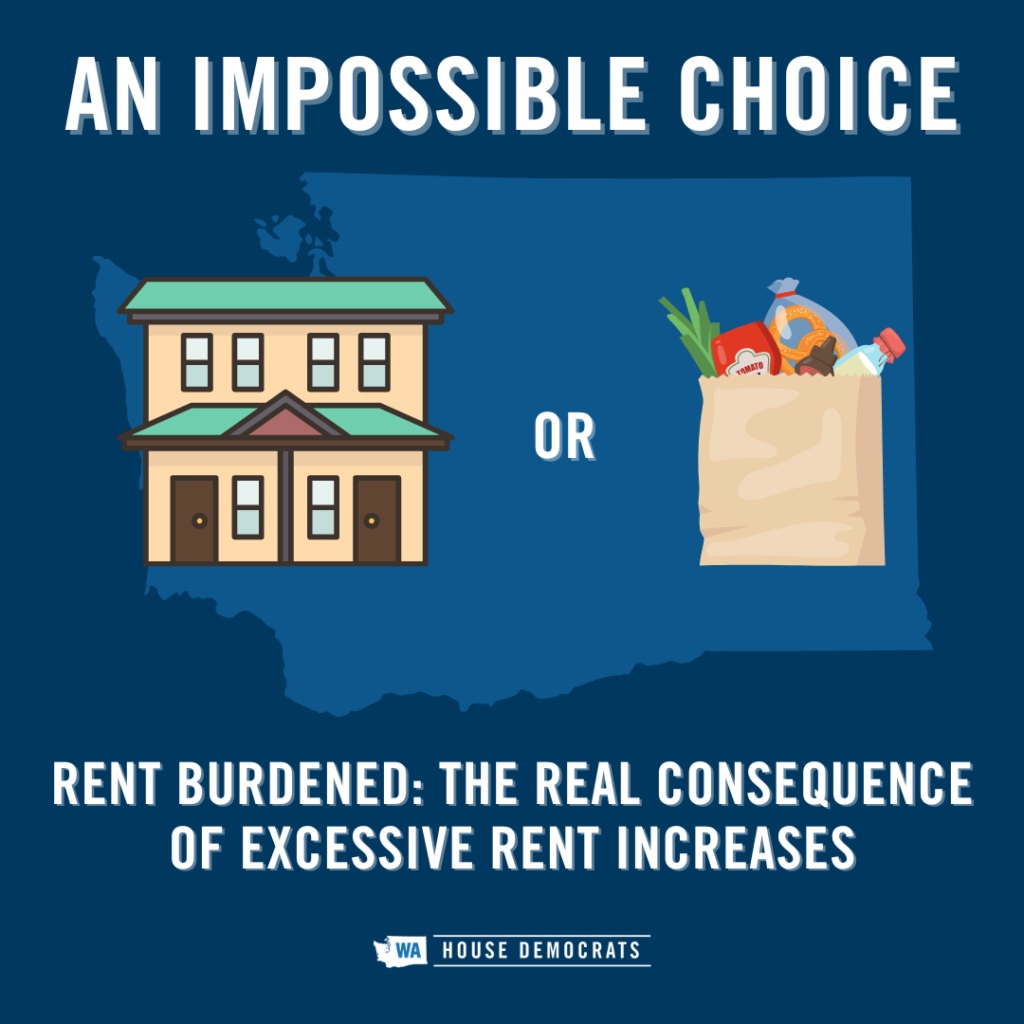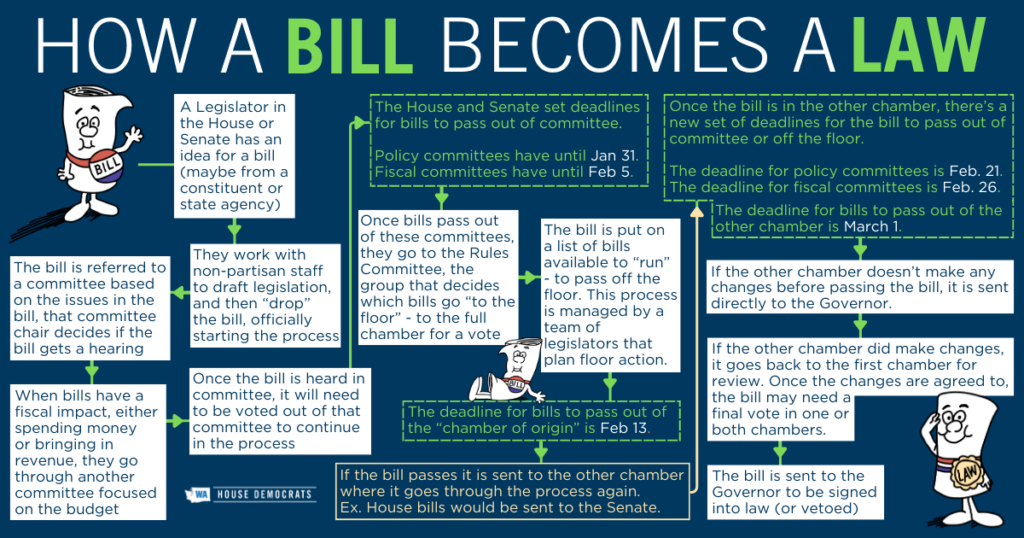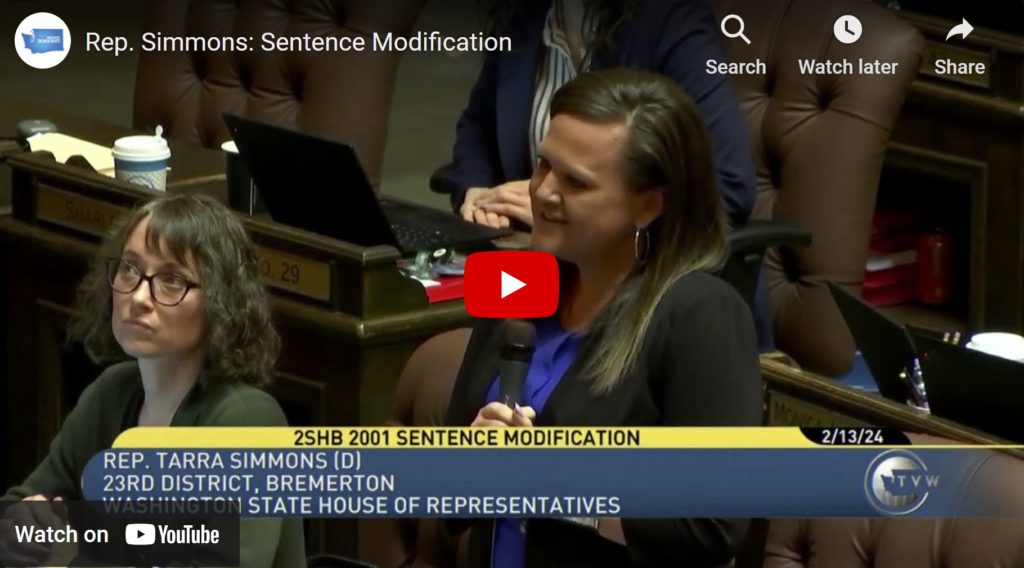Dear friends and neighbors,
We’re now in week six of this year’s legislative session. For the past week, my fellow legislators and I have been debating various bills on the House floor into the early hours of the morning. However, yesterday was “House of Origin” cut-off, which means that everything that passes off the House floor by this time will be sent on to the Senate for further consideration, and any bills passed in the Senate will now be considered in the House. Bills need to pass both chambers before becoming law. As of this writing, the House has passed 270 bills; 146 were unanimous and 205 have received strong bipartisan support (80+ votes)!
Housing & Rent Stabilization

Increasing housing supply alone won’t help with rent affordability. It will take years for us to start to see benefits from these efforts. Renters need help now.
The scope of the problem is staggering. As of 2019, nearly half of Washington renters spent 30% or more of their income on housing, and over 20% spent half or more of their income on housing. The problem has only gotten worse since then. Residential and manufactured home tenants alike are facing the brunt of this crisis. Unpredictable and escalating rent increases create impossible choices. In fact, for every $100 that rent increases, homelessness rates increase by 9%. This disproportionately harms families with low incomes, people with fixed incomes and seniors, and communities of color.
We’re working to pass rent stabilization this year through House Bill 2114. Residential and manufactured home renters alike deserve the predictability and stability that homeowners with a mortgage experience. Washington residents with low or fixed incomes, those pursuing a degree or in career training, or those facing other life challenges won’t be able to budget their way out of homelessness. When the rental market is escalating at this pace, rent stabilization is a lifeline for Washington tenants.
Even if we address housing supply and stability, some of our neighbors still won’t be able to afford rent. Last year, we increased our investment in deeply affordable housing through a historic $400 million Housing Trust Fund investment. This year we are examining other avenues to create more options for ongoing, stable, and predictable funding sources for housing support. Every single Washingtonian deserves a roof over their head. Everyone deserves the dignity of a safe place to call home.
For example, I’m supporting The Affordable Homes Act (House Bill 2276) which increases the supply of affordable housing for veterans, seniors, farmworkers, and people with disabilities by providing a more stable and predictable funding source. It modifies taxes on the sale or transfer of real property, reducing the real estate excise tax rate on most properties and adding a transfer tax on high-value properties sold for over $3,025,000. This reduces the share of taxes paid by low- and middle-income families and has the wealthiest Washingtonians share more equitably in funding this essential need in our communities.
Reproductive Freedom: Standing Strong Against Restrictions
Time and again, Washington Legislative Republicans have tried to downplay the threat to reproductive rights in our state. Behind their assurances, however, lies a different story—Washington Republicans have introduced more than 40 bills since 2016 aimed at restricting abortion and reproductive care rights.
We won’t back down. Democrats are standing strong, blocking these restrictive bills and passing laws to protect those seeking reproductive care, our healthcare providers, and your private healthcare data. Let’s be clear: we are steadfast in our commitment to defending your reproductive freedom in Washington state. Take a look:
Responsible Gun Legislation: Ensuring Safe Disposal
In response to a compelling investigation revealing the unsettling resale of firearms seized by the Washington State Patrol, I’m proud to support Rep. Tana Senn’s House Bill 2021 to break the cycle and ensure our state isn’t in the business of selling guns!
The report highlighted instances where guns were seized by the Washington State Patrol, sold due to the lack of ability to dispose them, and subsequently used once again in criminal activities and suicides.
The bill grants the Washington State Patrol the authority to responsibly destroy guns. It also mandates the disposal of firearms—the whole firearm—from buyback programs, except in specific circumstances. The message is clear: “We don’t want Washington state to be an arms dealer.”
House Bill 2021 is an effort to protect our neighborhoods from the unintended consequences of reselling weapons once in the hands of law enforcement. The safety of our community comes first.
Bills of Mine that Passed the House!

Three bills of mine have passed through the Washington House of Representatives. The vote tallies are in parentheses below and there are also links to press releases that went out about them that you can click to learn more. They include:
House Bill 1972 (97-0): This bill aims to strengthen financial support for the Washington Physician Health Program. The WPHP is a confidential, therapeutic alternative to professional discipline and provides early intervention, assessment, treatment referral, and post-treatment monitoring for health professionals who may not be able to practice safely due to impairing or potentially impairing health conditions such as substance use problems and cognitive and neurological conditions.
House Bill 1983 (97-0): This piece of legislation seeks to streamline and improve the utilization of the Criminal Justice Treatment Account. Essentially, what this legislation will do is provide continued support services for drug court graduates yet is tailored to each person’s individual needs. We first started experimenting with these needed changes during the pandemic and saw success with it. If passed, this legislation is poised to make a long-term impact by reducing recidivism rates and providing essential assistance to graduates facing challenges post-program completion.
House Bill 2001 (51-46): This bill will provide judicial discretion to modify sentences in the interests of justice. Long-term incarceration disproportionately impacts poor communities and communities of color, and lengthy sentences can also be a hindrance in reducing recidivism, as well as being costly to the state. The video below shows you why this bill in particular is so important to me.
These bills are all now under consideration in the Senate. I’ll continue to update you as these three advance through the legislative process.
Sincerely,
![]()
Rep. Tarra Simmons


